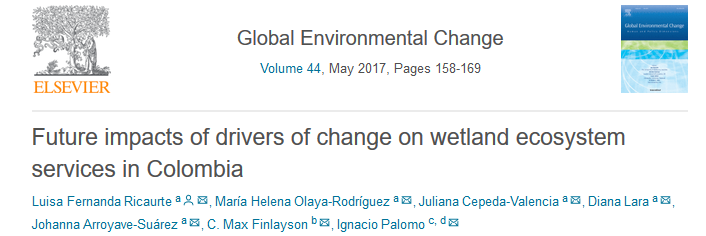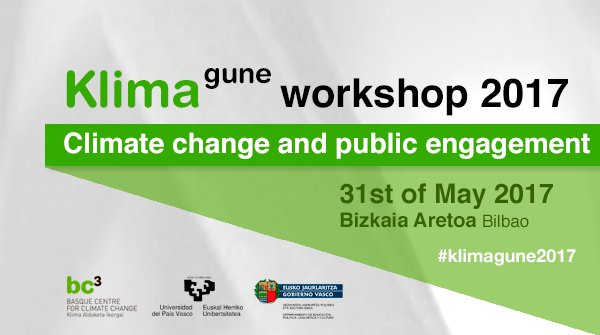"KLIMAGUNE 2017 - CLIMATE CHANGE AND PUBLIC ENGAGEMENT"The challenge of Klimagune 2017 – the two-yearly gathering on climate change– is to join forces in generating new transdisciplinary knowledge of climate change and transmitting it to numerous audiences by means of innovative dynamics of engagement.Its goal is to activate a framework of collaboration intended to remain permanently in place for all agents obliged to engage in action against climate change: from academia and the institutions to all citizens.Organised by BC3 (Basque Centre for Climate Change) and the University of the Basque Country, the 7th edition of this workshop will analyse forms and degrees of social engagement in regard to climate change, with contributions by some of the most respected thinkers and leaders in the field.With this call to generate networks of action in which all agents take an active part, Klimagune 2017 takes up the spirit of action following the Paris Agreements.






